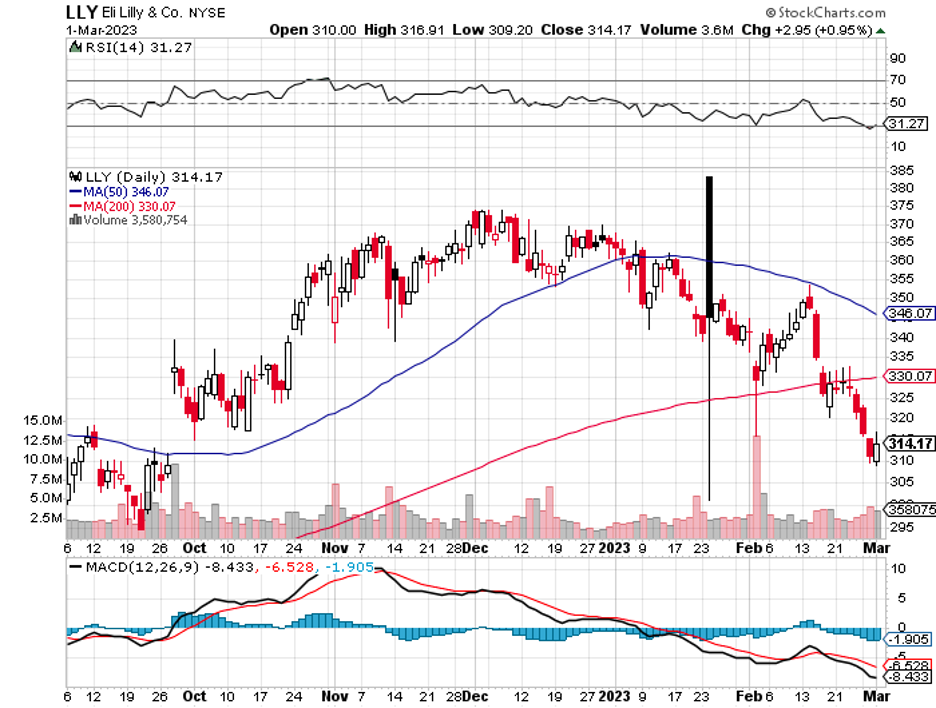An Unbeatable Stock Reforming The Sector
After starting 2023 with such great promise, practically all major stock indexes in the United States fell last month. Stocks dipped because of the unrelentingly rising inflation, which economists anticipate to lead to another round of seemingly unstoppable interest rate hikes later in the year.
What can stock investors do in this climate?
The ideal stocks in this situation are those defensive in nature because they tend to be less reactive or sensitive to macroeconomic conditions. As a result, defensive stocks deliver relatively solid price performance in bear and bull markets.
Defensive stocks are companies whose products or services are considered essential or necessary, regardless of economic conditions. These companies typically provide products or services that people and businesses cannot easily do without, such as healthcare, utilities, and consumer staples. Because these companies are less susceptible to fluctuations in the economy, they are often viewed as a safe investment option during times of market uncertainty.
Eli Lilly (LLY) stands out as one of the best defensive stocks in the biotechnology and healthcare sector today.
With over 38,000 employees across the globe and products commercially available in at least 120 countries, the company is no doubt a dominant presence in the industry. It is a global pharmaceutical organization that develops, manufactures, and markets drugs for a wide range of medical conditions, including diabetes, cancer, and autoimmune disorders.
The company has been in operation for over 140 years and has a strong reputation for innovation and research. Apart from Johnson & Johnson (JNJ), Eli Lilly’s market capitalization of roughly $327 billion makes it the most prominent pharmaceutical business worldwide.
Meanwhile, Eli Lilly pays out a dividend that yields around 1.1%. Over the trailing decade, this giant drugmaker’s dividend has experienced a consistent increase of about 130%.
Given that Eli Lilly is a healthcare company that produces medicines for life-threatening and chronic conditions, it can be considered a defensive stock.
In 2022, the company’s shares gained approximately 32.4% thanks to its solid organic growth and deep and diverse new treatments and drugs pipeline. Considering its history and track record combined with the market's volatility, Eli Lilly also benefited from its image of being a “safe” stock.
Despite the uncertainties, Eli Lilly looks to be poised for another healthy run in 2023. In terms of growth, the company is projected to climb higher courtesy of its newly approved diabetes and obesity drug, Mounjaro, which shows impressive potential. The company also has a promising pipeline, with several high-value candidates in the immunology and dermatology segments expected to gain approval this year.
Recently, Eli Lilly announced that it would put a cap on the out-of-pocket expenses for insulin at $35 per month for uninsured patients and those covered by commercial insurance. The company also surprised the public by announcing its plan to lower the price of this highly controversial drug by 70%.
After drugmakers jacked up the price of insulin in the past years, this drug became the symbol of out-of-control healthcare costs.
In the US alone, over 30 million people suffer from diabetes. Of these patients, more than 7 million need to take insulin every day. The alarming part of this situation is that 1 in 7 patients who require insulin daily find their budget affected at “catastrophic” levels because of the medication’s cost. These patients allot a minimum of 40% of their disposable income to the treatment alone.
This is why Eli Lilly’s announcement marked a significant development in the sector after months of aggressive lobbying to lower the price of the drug. With the company’s decision, the pressure became more intense for other drugmakers to follow suit. Specifically, major insulin distributors like Sanofi (SNY) and Novo Nordisk (NVO) are urged to apply the same rule.
All in all, Eli Lilly has a virtually recession-proof model and a positive long-term outlook. I suggest you buy the dip.

